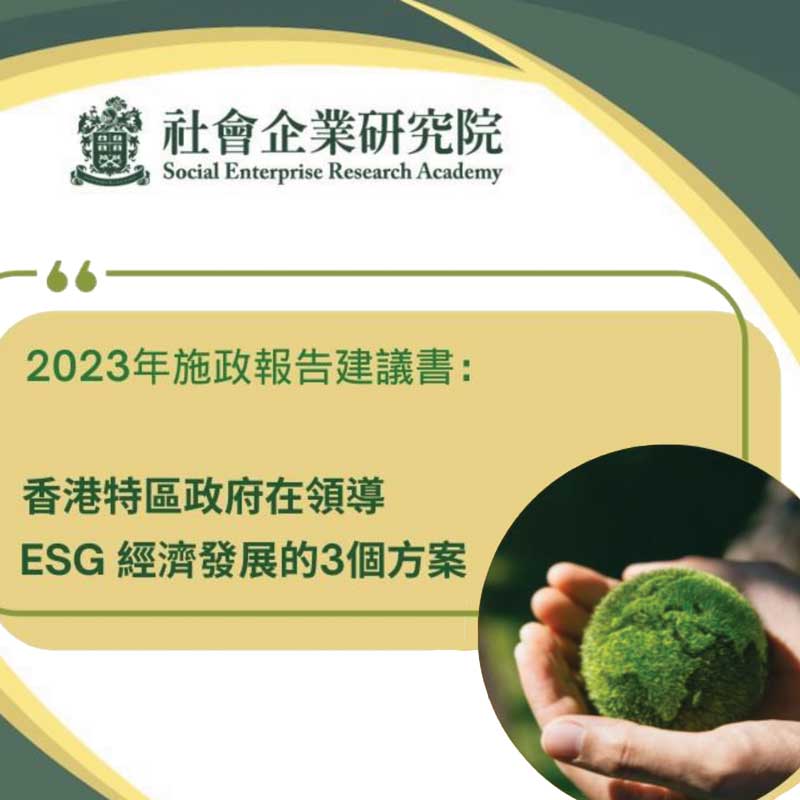The competitiveness of Hong Kong’s economy increasingly relies on sustainable development in the economic, social, and environmental aspects. The performance of Environmental, Social, and Governance (ESG) factors is an important indicator of sustainable development. ESG factors encompass:
– Environmental protection: greenhouse gas emissions, environmental pollution control, green ecology, energy conservation, etc.
– Social responsibility: consumer rights, labor relations, employee health and safety, privacy protection, equal opportunities, supply chain management, community well-being, etc.
– Corporate governance: internal governance and decision-making, risk management, business ethics and morals, composition of the board of directors, auditing and reporting, etc.

Summary of Recommendations
1. Establishing the framework of ESG corporate policies
Due to the wide-ranging involvement of businesses in ESG aspects, it is recommended that relevant departments collaborate. The government can formulate comprehensive ESG public policies, including long-term goals, integrated indicators, and cross-departmental action plans. The government can establish cross-departmental task forces, such as for the development of environmentally friendly smart cities, which require coordination among multiple departments. This allows for the formulation of missions, policies, goals, and strategies, as well as the evaluation of organizational operations, risk management, and financial and non-financial indicators. The implementation of ESG policies should follow a cycle of improvement to ensure consistency, coherence, and close connections throughout.
2. Developing ESG indicators for each government department
Government departments and public institutions can consider establishing performance indicators related to ESG. The government, led by the Chief Secretary for Administration, can establish a cross-departmental ESG Policy Committee to develop comprehensive ESG public policies. The Sustainable Development Council can provide advice to enhance implementation and monitoring capabilities. Transportation is the second-largest source of carbon emissions in Hong Kong, and cross-departmental collaboration is needed to reduce emissions. The Environmental Protection Department can establish cross-departmental functions to set carbon reduction targets and policies, as well as monitor and review progress.
3. Promoting sustainable development procurement
The government’s procurement strategy has a direct impact on the behavior of suppliers and businesses, and using ESG indicators as procurement criteria can promote sustainable development. The green procurement policies by the government should require the purchase of products and services based on green standards, aiming to reduce carbon emissions, waste, and promote a circular economy. Social value is an important component of ESG, and government procurement can consider factors such as improving wages and working hours, thereby promoting social innovation and sustainable development.
Social Enterprise Research Academy and a few support organizations, including The Federation of Hong Kong Industries, Asia CEO Community; Social Impact Investment Foundation; SynTAO Green Finance, Think ESG Ltd, conducted a consultation in August – September 2023 to gather industry opinions on ESG economic development and application. For the consultation result and full version of the proposal, please click here.



Social Enterprise Research Academy is the trademark of Social Enterprise Research College; formerly was known as Social Enterprise Research Institute.